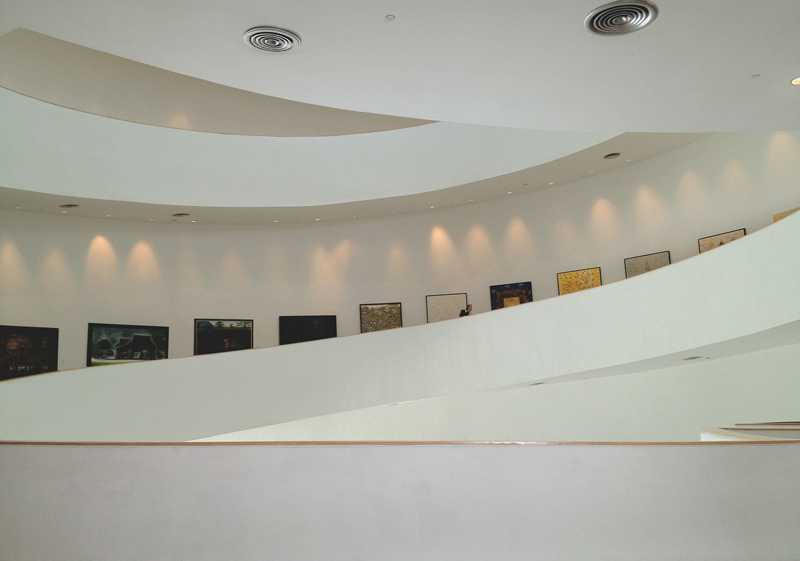Månadens Post
Political Advertising that is a World Apart
Publicerat 2010.10.22
Brendan Tate, Australia
Only if you are dead can you avoid political advertising during the lead up to an election. The agencies holding the political accounts make millions via the flood of television, radio and roadside advertising. But does this seemingly excessive volume make any difference to the outcome of the election?
It might be helpful to go trans-global to Australia to find the answers to these questions. Several months prior to the Swedish elections, Australia also went to the polls. The similarities between the two national elections were many: both were free and independent, both featured political parties high in rhetoric and low in policy detail; and both countries were subjected to an overwhelming deluge of political advertising.
What Australia did have, however, that Sweden was sorely missing was the television show The Gruen Nation. It was an offshoot of the highly successful The Gruen Transfer, an illuminating expose of the tricks and tactics used by the advertising industry. This panel formatted show is named to honour the moment where consumers succumb to scripted environmental disorientation and become unsuspecting impulse buyers. Or, in other words, advertising cannon fodder.
Hosted by comedian Will Anderson, the verbal jousting of the show’s resident advertising gurus Todd Sampson (the lateral thinker and CEO of Leo Burnett) and Russell Howcroft (the CEO of George Patterson Y&R who would do and say anything for a sale) is in itself enough reason to tune in. But it is how they disparage their own profession that makes it invaluable, and the insight they provide into their attempts to manipulate the public is, at times, astonishing.
The Gruen Nation revealed to the Australian public how they were being duped into voting for the politicians who were about to represent them in Parliament. If those who watched the show (ratings peaked at 1.4 million or one in nineteen Australians) had demanded that their party of choice ran a campaign of substance, then things could have been different. Instead of sound bites they could have had policy detail. Instead of hollow, soulless Muppets motivated purely by the desire for power, they could have pushed for politicians who actually represented their aspirations. But by then it was too late. The main political parties were running campaigns that were a race to the bottom, focused solely on highlighting the foils of their political rivals.
It was rubbish.
And thanks to The Gruen Nation, the Australian public were well aware of it. The show features a segment entitled ‘The Pitch’ where the producers invite two creative agencies to come up with a way to sell the unsellable. One pitch involving the Australian Green Party was so superior to anything the official advertising agency had produced that it prompted a ‘can we use that one instead?’ enquiry from the Greens, A request that was promptly rejected.
What followed was a massive on-line forum response, with the following two quotes just a sample indication of what the whole country was feeling: “I am confused as to why two agencies given a brief and very little time to work on it can turn out concepts far superior to what we are presently being subjected to” and “I wonder if any of the political parties will be dumping their current agencies?”
It is hard to quantify how much influence The Gruen Transfer had on the outcome of the election. Surely if the collective political conscience of the Australian public wasn’t awakened, it was aroused. The nation seemed to be saying they wanted more from their politicians than the ‘lowest common denominator’ advertising and policy detail that they were forced to endure.
In the end, the reigning Labour government managed to retain government after scrambling for the support of a number of Independents. In the interests of fairness, probably the greatest direct impact on the election results came from a renegade ex-prime ministerial candidate who encouraged residents of the marginal western Sydney seats to vote informal, a move that caused a significant swing against the ruling Labour government in what were once very safe seats.
Sadly, there was no The Gruen Nation during the recent Swedish elections. But if there had been, would the Swedish population have embraced it to the extent that Australia did? That’s hard to say, but it would be interesting to see if a Swedish advertising magician would be prepared to reveal some of their tricks.
Stendahl CEO, Peter Ohlsson, hints at a counterproductive advertising cycle. Because of Swedish political disinterest, political parties have an even greater need to be visible. As a consequence, they create political advertising that the majority filter out, but the political parties need public attention to be successful. They need interest, so they advertise further. Thus the cycle self perpetuates.
Whether political advertising makes any difference to the outcome of an election, Sandberg Trygg partner Fredrik Hansson commented that the messaging wasn’t strong enough to reach the undecided voter. Because the communication from all the different parties was similar, and the creative element in political advertising non-existent, the impact it had on the result was negligible. It was costly, but then the results didn’t justify that cost.
It would be fantastic to see a Swedish version of The Gruen Transfer/Nation. Apart from being great entertainment, it’s also important education. Imagine a generation of Swedish children if not impervious to, then at least aware of, the cons of advertising.
If the reasons why a show like the The Gruen Transfer exists are cloudy, then the ramifications are stark. As the public is made aware of the ways they are being manipulated and cajoled into thinking a certain way, to vote for someone, or to buy things, better and more creative ideas need to be developed just to hold the same ground.
And that can only a good thing.
Brendan Tate is the director of Get Creative English Copywriting Services


